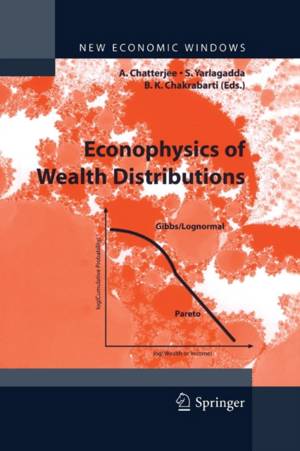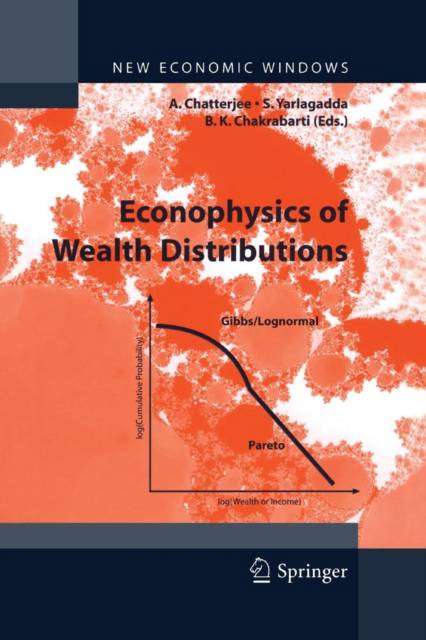
- Afhalen na 1 uur in een winkel met voorraad
- Gratis thuislevering in België vanaf € 30
- Ruim aanbod met 7 miljoen producten
- Afhalen na 1 uur in een winkel met voorraad
- Gratis thuislevering in België vanaf € 30
- Ruim aanbod met 7 miljoen producten
Zoeken
€ 125,95
+ 251 punten
Omschrijving
We all know the hard fact: neither wealth nor income is ever uniform for us all. Justified or not, they are unevenly distributed; few are rich and many are poor! Investigations for more than hundred years and the recent availability of the income distribution data in the internet (made available by the finance ministries of various countries; from the tax return data of the income tax departments) have revealed some remarkable features. Irrespective of many differences in culture, history, language and, to some extent, the economic policies followed in different countries, the income distribution is seen to fol- low a particular universal pattern. So does the wealth distribution. Barring an initial rise in population with income (or wealth; for the destitutes), the population decreases either exponentially or in a log-normal way for the ma- jority of 'middle income' group, and it eventually decreases following a power law (Pareto law, following Vilfredo Pareto's observation in 1896) for the rich- est 5-10 % of the population! This seems to be an universal feature - valid for most of the countries and civilizations; may be in ancient Egypt as well! Econophysicists tried to view this as a natural law for a statistical ma- body-dynamical market system, analogous to gases, liquids or solids: classical or quantum.
Specificaties
Betrokkenen
- Uitgeverij:
Inhoud
- Aantal bladzijden:
- 248
- Taal:
- Engels
- Reeks:
Eigenschappen
- Productcode (EAN):
- 9788847055476
- Verschijningsdatum:
- 15/11/2014
- Uitvoering:
- Paperback
- Formaat:
- Trade paperback (VS)
- Afmetingen:
- 156 mm x 234 mm
- Gewicht:
- 367 g

Alleen bij Standaard Boekhandel
+ 251 punten op je klantenkaart van Standaard Boekhandel
Beoordelingen
We publiceren alleen reviews die voldoen aan de voorwaarden voor reviews. Bekijk onze voorwaarden voor reviews.










